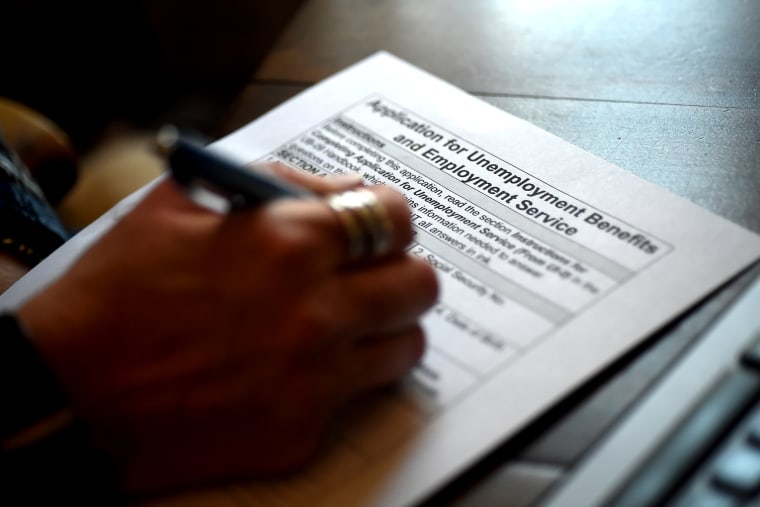As regular readers know, progress on weekly unemployment claims has been hit or miss in recent months, though the new report from the Labor Department pointed in a more encouraging direction.
In the week ending January 30, the advance figure for seasonally adjusted initial claims was 779,000, a decrease of 33,000 from the previous week's revised level. The previous week's level was revised down by 35,000 from 847,000 to 812,000. The 4-week moving average was 848,250, a decrease of 1,250 from the previous week's revised average.
While any improvement is encouraging, this new report points to unemployment claims higher than totals we saw in the fall. What's more, as of this morning's report, this is the 46th consecutive week in which the number of Americans filing for unemployment benefits was worse than at any time during the Great Recession.
It's also a reminder, as multiple reports have indicated, that President Joe Biden has inherited the worst job market of any modern American president.
As we've discussed, there's no great mystery as to the cause: the more the nation struggles with the coronavirus pandemic, the greater the toll it takes on the economy. Indeed, this comes on the heels of the most recent monthly jobs report, released last month, showing the economy losing jobs in December. (The jobs report for January will be released tomorrow.)
There is reason to believe conditions can and will improve. For one thing, vaccines are starting to reach the public in larger numbers, and vaccination rates are expected to increase considerably in the coming weeks and months. For another, the latest congressional relief package included unemployment aid, direct-aid checks, and a revised Paycheck Protection Program, each of which should help make a positive difference.
But few seriously believe the economy is on stable footing, and the need for additional congressional investments -- sooner rather than later -- seems obvious.
Will the investments arrive? It seems increasingly obvious that the new president is fully invested in the outcome. Politico reported overnight:
After two weeks of letting negotiations over a Covid relief package linger in Congress, Joe Biden hit the gas on Wednesday. The president worked the phones and hunkered down with fellow Democrats at the White House, in what aides described as an overt signal that he wants his massive "rescue" package passed and passed quickly.
With this in mind, the Democratic-led House passed a budget resolution yesterday afternoon, which will make it possible to pass a relief package through the reconciliation process -- a step that would protect the bill from a Republican filibuster. The final vote tally yesterday was 218 to 212, with zero GOP House members voting for it.
An arduous Senate debate is also getting underway, with the intention of wrapping up the process by the start of next week. That won't guarantee passage of an ambitious relief plan, but it will at least make it possible for Democrats to try to govern on the issue without fear of Republicans uprooting the process.

